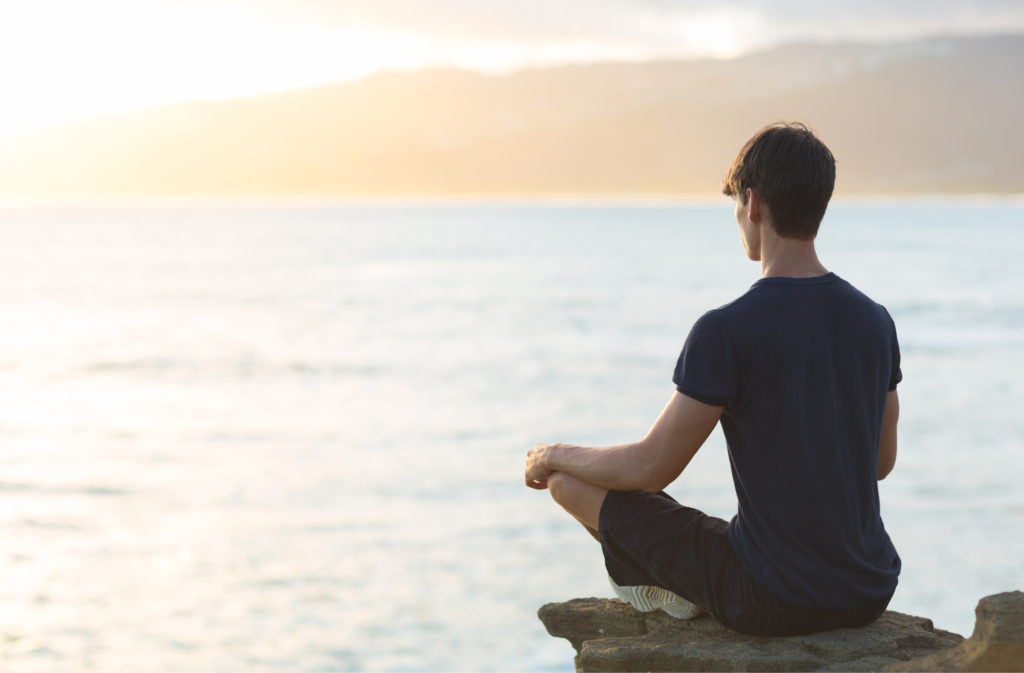Staying emotionally healthy can be challenging while traveling and during a contract assignment. We compiled eight tips to help you stay mentally fit.
Mental Health While Traveling
Karen DiDonato ⋅ July 5, 2019
We all know we should be active year round. Staying fit has numerous physical and mental health benefits. But what about when traveling and working on an assignment in a new location without friends and family nearby?
Leaving your usual routine and entering new territory can trigger challenges and could cause symptoms of a mental health condition to flare. What steps can you take to stay mentally healthy while on assignment and during your travels?
The National Alliance on Mental Health (NAMI) recommends these eight tips to stay mentally fit:
1. Be prepared and plan ahead
Stress and fear of the unknown can trigger mental health symptoms, so do your homework before you leave. Research your new location online. Keep a map (online or paper) marked with your hotel and work location as well as the places you may need to visit including the grocery store, gas stations, a pharmacy, the hospital, the library, etc. Make a list of the places you’d like to visit for fun. Be sure to have a copy of your traveler information sheet with your hotel and first day of work information, as well as information about your rental car (if applicable).

2. Find time to relax
With hundreds of potential new experiences, you may feel overwhelmed. Allow yourself some downtime to rest and recuperate. If yoga is your thing, be sure to pack your mat and blocks. Tune into Netflix or watch your favorite shows. Pack a book (or an e-reader) or even your knitting or crocheting. Make the time to do whatever brings you peace.

3. Keep your medication with you
Packing your medications in your carry on bag can avoid a potential problem if your luggage gets lost. Keeping your meds with you during a long day of traveling or sightseeing can help you to not forget to take your medication — especially if you are traveling to a different time zone. Set an alarm on your mobile phone or watch as a reminder.

4. Bring your favorite tunes
Music can be particularly helpful in reducing anxiety while traveling. Pop in your earbuds or put on your headset to get lost in your favorite beats or pick something new that is soothing. How do you know which music to listen to? Try these on for size.

5. Squeeze in a pre-travel workout
According to the Anxiety and Depression Association of America: “Scientists have found that regular participation in aerobic exercise has been shown to decrease overall levels of tension, elevate and stabilize mood, improve sleep, and improve self-esteem. Even five minutes of aerobic exercise can stimulate anti-anxiety effects.” If you are feeling apprehensive about your trip, exercise can help get rid of nervous energy and make you feel more at ease. Once at your destination, incorporate exercise into your daily routine.

6. Stay hydrated
Even mild dehydration can affect mood, energy levels, and the ability to think clearly, so remember to pack a reusable water bottle. Not a fan of plain water? Infuse it! Add gently squeezed citrus, cubed melon, crushed berries or herbs into your filled water bottle and let it steep for a couple hours. Give it a try with these recipes. Infused water is very refreshing.

7. Eat healthy foods
Try to maintain healthy eating habits while away from home. Just because you don’t have your kitchen in arm’s reach, you should still make good choices. According to the Mental Health Foundation, “A balanced mood and feelings of well being can be protected by ensuring that our diet provides adequate amounts of complex carbohydrates, essential fats, amino acids, vitamins and minerals and water.” The impact that food has on mood and other aspects of mental illness is still being researched. Learn more about nutritional psychiatry here.

8. Practice mindfulness
Mindfulness, according to the American Psychological Association, is a moment-to-moment awareness of one’s experience without judgment. Yoga, tai chi, and qigong can cultivate mindfulness. Researchers theorize mindfulness reduces rumination, reduces stress, boosts memory, improves focus, and provides greater cognitive ability.

Adopting these tips can help lower your stress and help you stay mentally healthy while traveling and during your contract assignments.
If you are in a suicidal crisis or emotional distress, confidential emotional support is available 24/7 by calling the National Suicide Prevention Lifeline at (800) 273-8255 or by chatting online at https://suicidepreventionlifeline.org/chat/.
